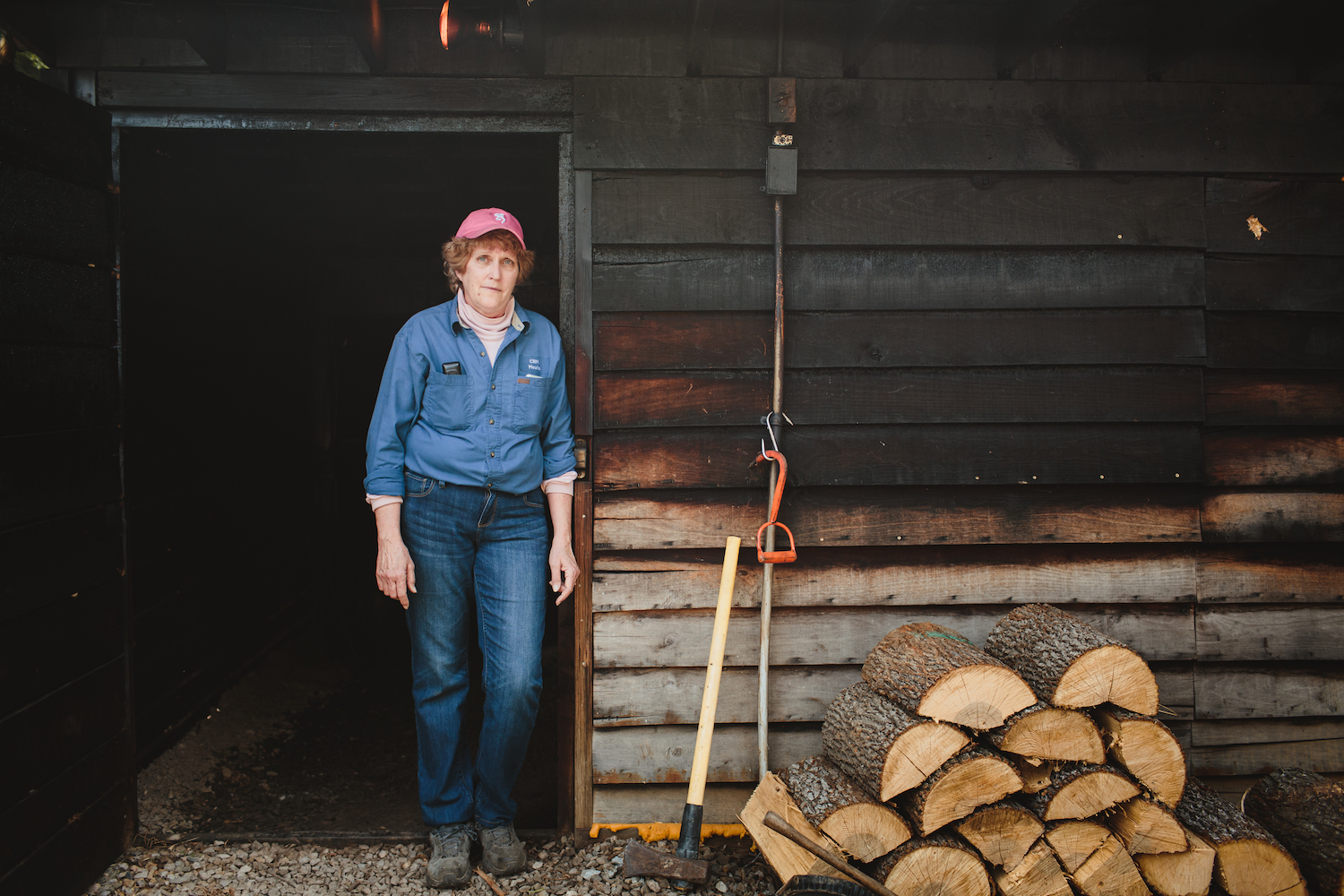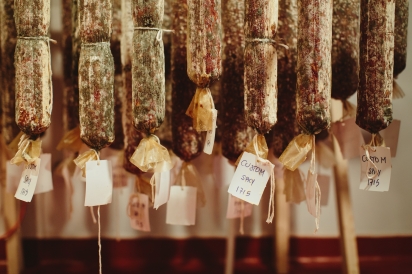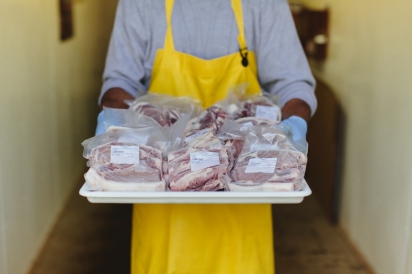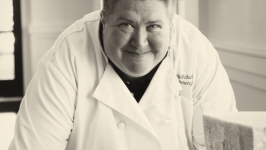Denise Garza, Meat Processor
Conscientious eaters who scan meat packaging for humane buzzwords like “grass fed” and “free range” should be just as concerned about how that animal left this world. That is the philosophy of Denise Garza, who believes that supporting local, sustainable meats requires an understanding and acceptance of humane processing methods, and how they affect not just an animal’s end-of-life moments, but meat yield, flavor and texture.
“I respect the fact that the animal was born for a reason and raised for a reason, and that’s to benefit us—so we should be respectful of the animal,” Garza says. “Also I’m a little neurotic about not being hypocritical. I eat meat so I shouldn’t have a problem at the processing end.”
It is, of course, a sensitive topic, but Garza wants to go there. She will, without hesitation, launch into a thoughtful discussion about humane slaughtering techniques to minimize an animal’s stress during its last moments.
If you buy locally raised meats in Richmond, then Denise Garza or her husband, Louis, or son, Steven Yanoska, likely slaughtered the animal, butchered it and packaged the cuts. They run Country Road Meats in Amelia, the only USDA-certified slaughterhouse (also Animal Welfare Approved, Certified Humane) within a 100-mile radius of the city.
The heart of Garza’s operation is the slaughterhouse. The team processes its own farm-raised animals, and does some smoking and charcuterie, but the majority of the work is for resellers who bring live animals to the facility. (Country Road also processes killed game for hunters in season.) Garza works occasionally in slaughtering, wielding bolt gun stunners for animals of various sizes ranging from alpaca to bison.
“The crew doesn’t like me down on the slaughterhouse floor,” Garza says, so she primarily butchers and packages. “I can skin an animal as quick as anybody. I do a good job, but the crew is younger and they worry about me.”
Garza, age 56, has tweaked her facility setup by incorporating some of the recommendations made in studies by Dr. Temple Grandin, the animal science expert at Colorado State University. Grandin was famously portrayed by Claire Danes in a 2010 biographical film focusing on her autism, empathy for animals and development of humane slaughterhouse techniques.
“The animals come in the day before, and the cow is hanging out, he’s happy,” Garza says. “But the pig ponders: Why am I here, what’s happening? By the morning they’re upset. I think they know what’s going on.”
To help alleviate fear and stress as animals move from holding pens to the slaughterhouse floor, Garza has made a few changes to the intake “chute” they walk through. For example, pigs can’t see very well and all animals are easily spooked by shadows and dark areas, so the outdoor intake chute is sunny and well lit. To keep animals guided forward rather than being distracted by movement or dark spaces outside the chute, Garza lined it with dark fabric.
“These changes make things easier and you feel better about what you are doing,” Garza says. “You are doing everything you can for the safety and security of the animal.”
A calmer animal yields better meat texture, flavor and yield, as Garza discovered when she studied the differences between “hot weight,” immediately after slaughter, and “cold weight,” after meat storage in a refrigerator. A typical carcass loses 3–5% of its weight in “cooler shrink,” primarily from blood loss squeezed from tensed muscles.
When Garza took a few samples she discovered that her cold weights were almost equal to her hot weights, even after two weeks of cold storage – an indication of how little the animals were stressed.
Garza’s higher purpose is to get local meat onto local tables, helping support local producers. “I am into humane, which sounds crazy for a slaughterhouse,” she says. “But I have a lot of respect for the process.”








